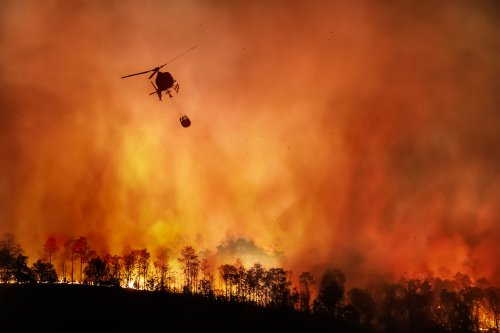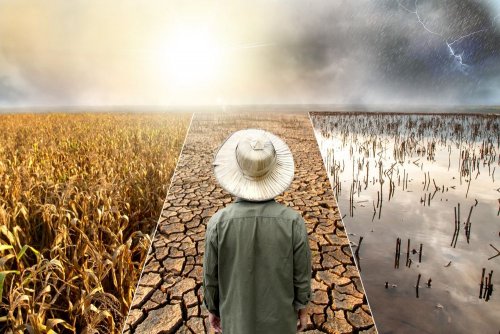A study by the UK's Bureau of Meteorology has shown that human greenhouse gas emissions from human activities are directly responsible for long-term dry conditions in the Mediterranean basin and increased rainfall in the rest of Europe.
This is the first study to show a direct link between seasonal precipitation trends in Europe and climate change, reports Bloomberg
Nikos Christidis, a leading author and climatologist with the Meteorological Office, explained that changes in the structure of precipitation in Europe will continue as the atmosphere warms.
"Despite the fact that countries are accustomed to such extremes, the increase in frequency, severity and intensity will require greater adaptation to the new type of climate regime," he said.
According to the latest report of the UN Intergovernmental Panel on Climate Change, scientists believe that man-made climate change is affecting the structure of precipitation on land. However, the regional effects of this global trend are difficult to identify, making it difficult to develop mitigation strategies to help vulnerable populations and the environment.
Researchers have been studying seasonal precipitation in Europe since the early 20th century. They found that the Mediterranean basin is getting drier, while the rest of the continent is getting wetter.
This trend is stronger in winter and weaker in summer, when drought is more common throughout Europe. After all, when the planet heats up, water evaporates, and the amount of water vapor increases by 6-7%. Thus, higher humidity leads to changes in the structure of precipitation.
“The Meteorological Bureau's findings are consistent with studies of the attribution of certain events, such as the floods that devastated Germany last year . Human emissions of greenhouse gases make such events more intense and frequent, ”the article reads.
The researchers created 3 scenarios:
- when human impact on the climate has been eliminated;
- when the climate was affected only by aerosols;
- when the climate was affected by aerosols and greenhouse gases.
They concluded that greenhouse gas emissions were a major factor in this trend, but their impact was weakened by aerosols, which have a cooling effect on the planet.
"Ironically, as the world - and Europe in particular - seeks to improve urban air quality and limit industrial emissions, changes in rainfall will accelerate, the study concludes, by reducing the amount of polluting aerosols," the report said.
This, combined with continued global warming, means that the risk of extremely dry seasons in the Mediterranean and extremely wet seasons in other parts of Europe is increasing.
Christidis warned that even in countries with a relatively high capacity to adapt to changing climates, communities can still be very vulnerable.
"The climate will change to what we do not feel now, and all these changes will have a number of consequences," he said.
We will remind, UN has predicted increasing the frequency of natural disasters by 2030 almost half.
As EcoPoliticа reported earlier, the temperature in Europe in 2021 increased by a record 2 ° C.





